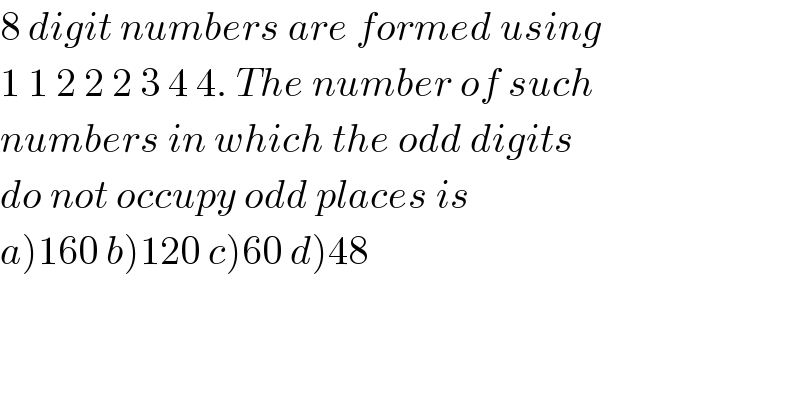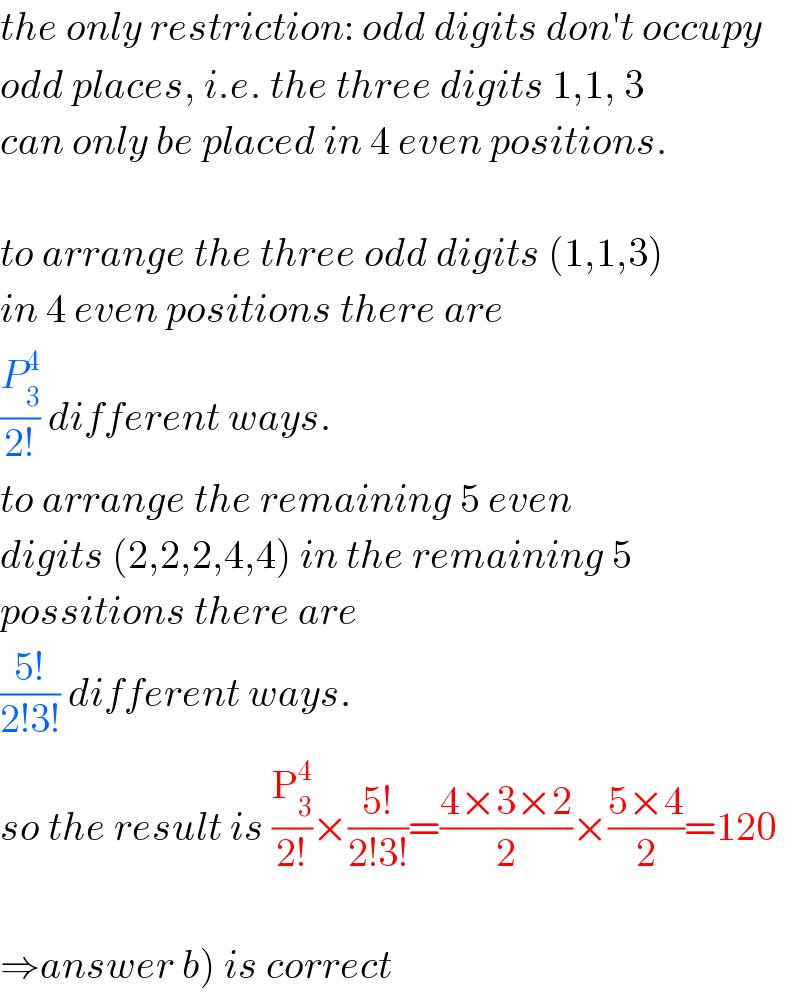
Question and Answers Forum
Previous in Permutation and Combination Next in Permutation and Combination
Question Number 52278 by Necxx last updated on 05/Jan/19

Answered by tanmay.chaudhury50@gmail.com last updated on 06/Jan/19
![−_8 −_7 −_6 −_(5 ) −_4 −_3 −_2 −_1 odd place are(1,3,5,7) even place (2,4,6,8) odd digit(1,1,3)→three even digit (2,2,2,4,4)→five now place 1,3,5,7 to be filled by even digits(2,2,2,4,4) so numbers of way is=((5×4×3×2)/(3!×2!))=10 [denominator 3! for (2,2,2) and 2! for(4,4) ] remaning four place (2,4,6,8) rrmaining digit (1,1,3)nd one even digit ways=((4×3×2×1)/(2!))=12 out of these (10×12)=120](Q52292.png)
Commented by mr W last updated on 06/Jan/19

Commented by tanmay.chaudhury50@gmail.com last updated on 06/Jan/19

Commented by mr W last updated on 06/Jan/19

Commented by Necxx last updated on 06/Jan/19

Answered by mr W last updated on 06/Jan/19

Commented by Necxx last updated on 06/Jan/19

